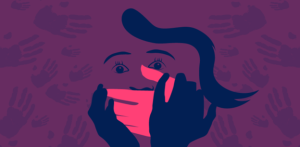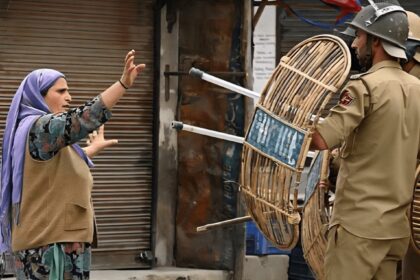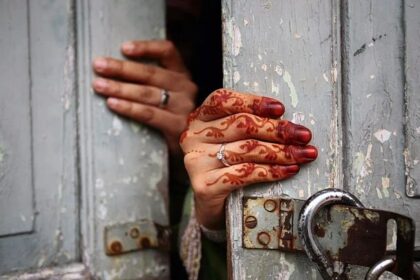Marriage is one of the most important decisions one makes in their life. This institution not only sets your life on a new trajectory, but it also shapes the future of your lineage. With a lot of your peace and sanity relying on this one decision, common sense says that the person who wants to pursue it definitely needs to work on themselves first. They must be aware of the person that they are, the kind of challenges and traumas they might have, and the ways that could help them get on the other side of those traumas.
In the previous year, a very famous novel by an equally famous young adult fiction writer, Colleen Hoover, was adapted into a movie, It Ends with Us. I have read the novel and watched the movie when it came out, and of course, I loved the book more. However, this piece is not about what is better, the novel or the movie. Rather, this is about an unspoken sin that was depicted beautifully in both adaptations: marital rape.
Marital Rape
Marital rape is defined as forming physical relations with your spouse by force and without their consent. In the United States, it has been deemed illegal in all fifty states since 1993; similarly, in the United Kingdom, Canada, France, Italy, Singapore, and many other countries, this act is explicitly criminalized. While 119 countries have passed legislation pertaining to domestic violence and 125 have laws on sexual harassment, only 52 countries have laws on marital rape, and unsurprisingly, Pakistan is not one of them. Till date, only one case of marital rape has been reported by a woman in Multan. In Pakistan, the mere acceptance of this offense would bring waves of change. However, many factors in our country create hurdles for this type of progress, including a lack of knowledge of rights, financial insecurity of women, and social stigmas related to sex education in general.

It Ends with Us
In the novel, the female protagonist sees fits of anger in her otherwise extraordinary neurosurgeon husband, during which he loses control of himself and seemingly unintentionally ends up physically hurting her, the last of which was marital rape. Since the protagonist has already been made aware of domestic abuse through a painful childhood and the broken relationship between her parents, she does not take her sweet time to ‘change him,’ ‘fix him,’ or create futile justifications for his behavior. Yes, she does give him time to change himself and improve their marriage, but she does not wait until he ‘unintentionally’ kills her.
This concept gained a lot of appreciation from people around the world, and justifiably so. What does not make sense, however, is how late we are in actually acknowledging it and the way our perception of the issue, and the courage to finally begin talking about it, seems to come through western media. In the Quran, chapter 1, verse 223, Allah has already mentioned how men should approach their women ‘consensually’ and how they should be ‘mindful’ of Allah as they do so. Seeing that the Quran came around 1,400 years ago, we can see that this injunction was already around us; we just wandered lost around it.
Conclusion
Marriage is indeed a sacred union between man and wife, but this union does not mean that one owns the other. No human is ever a property of the other in any relationship. We are independent beings with our own self-respect, rights, and boundaries that no one should ever be allowed to violate, no matter how close they are to us. In fact, that is why love is never enough to sustain any relationship. Respect, kindness, and understanding go hand in hand. Moreover, one should be a constant work in progress. Acknowledging our strengths and appreciating them, understanding our weaknesses, and working on improving them all take time, effort, and love for our existence. If only the neurosurgeon in the novel, and many people, spent time healing themselves rather than perfecting their careers, their relationships would have been more sustainable and rewarding.
















